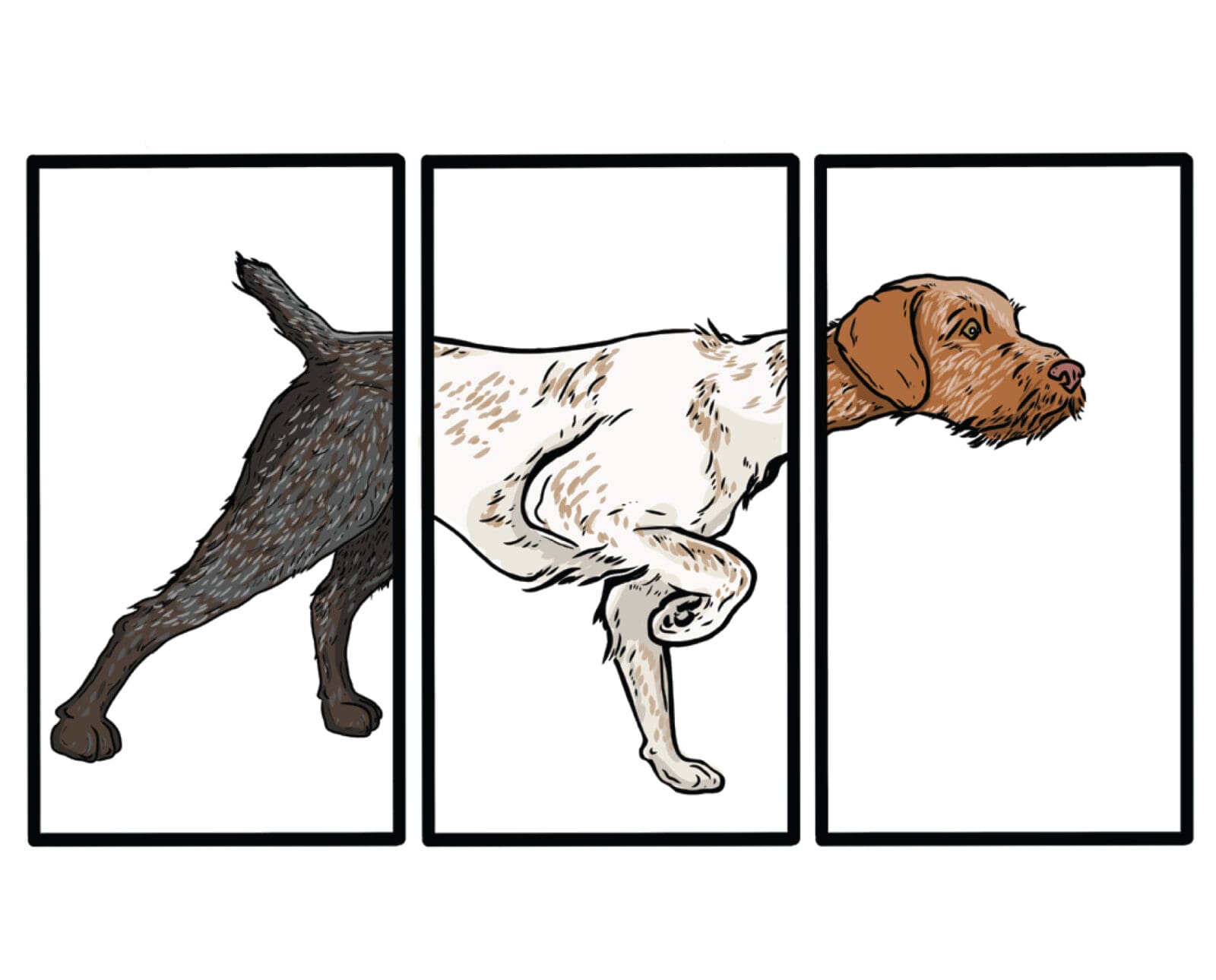
Jennifer Wapenski is the Director of Operations and Managing Partner…
Based in Michigan, Naomi Coates is a nurse by profession,…
Letting go of that quest for perfection in a wide selection of dog breeds.
*This article originally appeared in the Fall 2023 issue of Project Upland Magazine. To support our small business and enjoy more content like this, subscribe to Project Upland’s print magazine.
Listen to more articles on Apple | Google | Spotify | Audible
The art of choosing a bird dog is the subject of countless words—printed and spoken—including good-natured banter among friends. We bird dog owners dissect the subject with surgical precision, all based on the premise that there is one true answer: the perfect dog. For most of us, the path to our next (or first) bird dog is a journey taken with great care and caution and fraught with anxiety. After all, owning a hunting dog is a big commitment, and nobody wants to get it wrong.
If modern bird hunters all had the same requirements and preferences for their dogs, we’d have a single bird dog breed. The Common Bird Dog would range at the preferred distance, move at the preferred speed, handle birds by pointing or flushing in the preferred manner, and would, of course, have the preferred coat, color, size, and personality. The sheer number of different bird dog breeds, however, points to the reality of human opinion.
Every single dog breed reflects the preferences of the people who developed it and the circumstances in which it gained popularity. If the breed has lasted into the modern era, that means it has found a community of enthusiasts who share those preferences and circumstances. The breed may be wildly popular or dangerously rare, but its survival means that humans believe it to be worth the effort of keeping it going. The spectrum of bird dogs is a testament to the diversity of thought and taste among hunters around the globe.
My own journey into bird dogs landed on a rare breed with a tightly-controlled breeding and testing program and, with it, a tight-knit community of like- minded hunters. Deutsch Langhaars are not a common dog breed, and the more years I spend with them and the surrounding community, the more I understand—and even appreciate—the rarity. Are the dogs perfect? Absolutely not. But are they the right fit for the people who surround them? Absolutely yes.
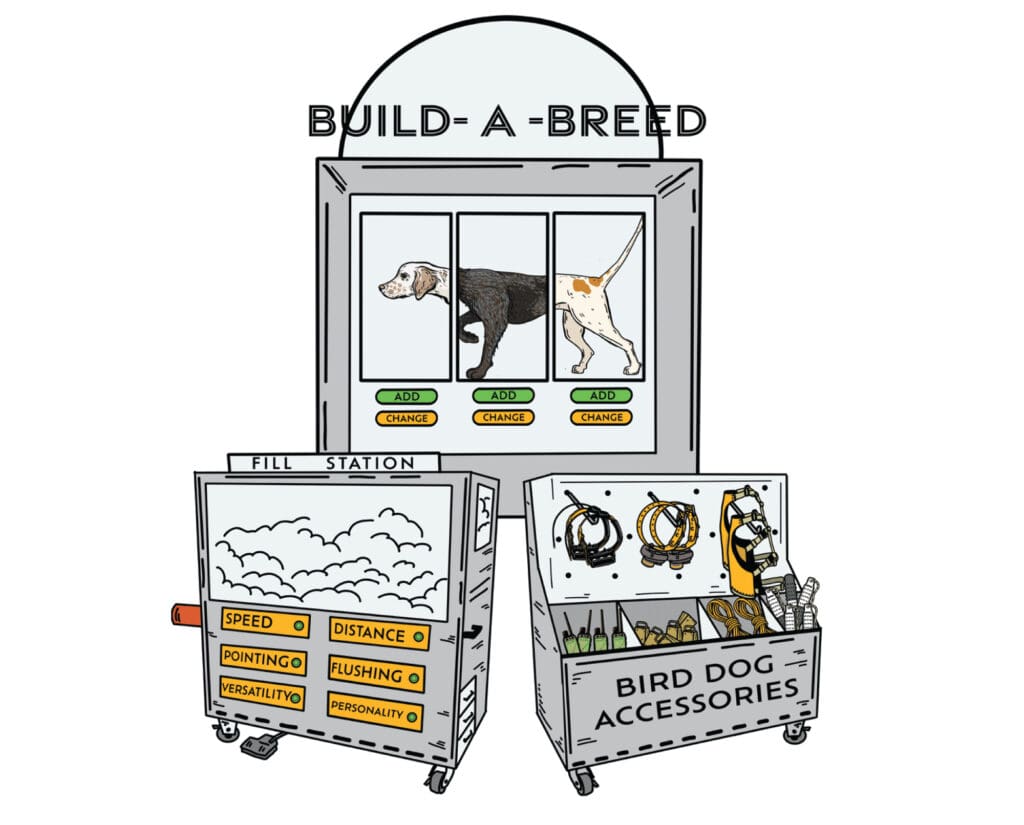
A Well-Bred Dog Will Get the Job Done
For all the “differences” that we talk endlessly about, when you take a bird’s-eye view, every breed of bird dog is a suitable means to a similar end. You want to hunt birds? A good dog will help you do that and, chances are, you’ll have a good time along the way.
Technology, science, and new training methods have improved hunting dog breeds by incredible measures. Decades of trials and tests—whether formally sanctioned or informally waged between friends—have allowed selective breeding to elevate the performance of hunting dogs across the board. Our dogs are good at what they do. All of them. They might look a little different from each other, but each one gets the job done.
That’s what makes the quest for the perfect bird dog more of an exercise in esoterica than an act of necessity. The splitting of hairs between a well-bred German Shorthair and a well-bred Braque Francais should be fun because you enjoy the details, not because it means the difference between whether or not you’re able to hunt birds with your dog. A well-bred Cocker and a well-bred Springer will both have a great nose and an intense desire to find and flush birds for you; the choice between them simply comes down to your preferences on size and personality. It’s okay to let personal preference take over and like something simply because it speaks to you.
You’ve undoubtedly heard about the five stages of hunter development: the shooting stage, the limiting-out stage, the trophy stage, the method stage, and the sportsman stage. As a hunter progresses through these stages, his or her priorities start to shift as the focus moves from pulling the trigger to appreciating the whole process. The sport transforms into an art.
I would argue that there are similar stages for the development of a bird dog owner. First, there’s the overwhelmed stage where you worry about which breed, which breeder, which litter, and which puppy to choose. Then comes the honeymoon phase where this young dog just might be among the greatest bird dogs that ever lived. Often that is followed by the breed evangelist phase: you’ve discovered that the debate is over, the perfect breed of dog does exist, and everyone needs one. Finally, you may find yourself one day waking up in the bird dog nirvana stage, when you realize that the mosaic of bird dogs is the most beautiful thing you can imagine. Sure, the Tibetan Curly-coated Pointing Terrier may not fit your ideal, but you love the fact that it exists in the world and that someone hunts with it.
That’s what makes the fabric of dog breeds so utterly fascinating. I may have no interest in a particular breed because it doesn’t fit my lifestyle or even just my aesthetic preferences. But I’m just one in a couple billion humans and my tastes are uniquely my own. Hunting dogs are quite literally the manifested vision of generations of hunters from all corners of the world, representing a diversity of thought and circumstance that is almost beyond comprehension.
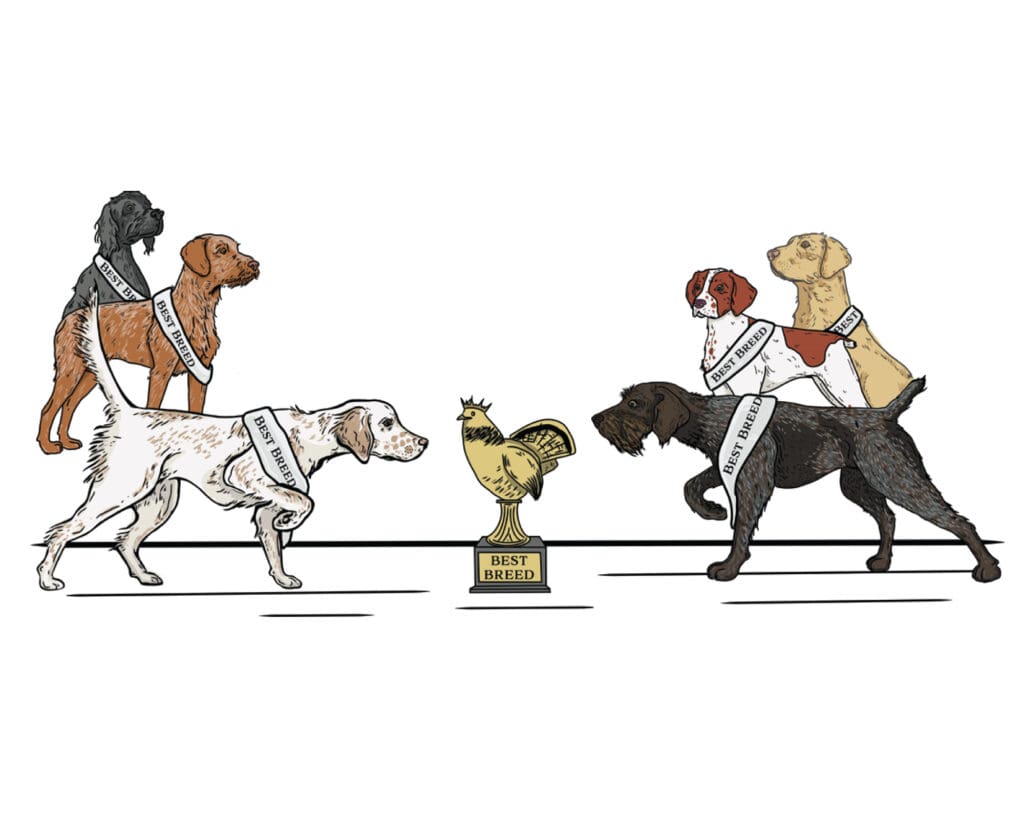
Perfection is a State of Mind
As a breeder, I field a lot of inquiries from people who are in the overwhelmed stage of trying to pick their next bird dog. They’ve generally done a ton of research and have a reasonably good idea of what they want, but they’re usually stuck between two or three breeds that are—for all intents and purposes—pretty equivalent. It’s at this point that I offer some gentle advice.
“Look. Both choices are great. You can’t go wrong. At the end of the day, you’ll get a puppy, you’ll love that dog, and you’ll love hunting together. Pick what you like! The dog will hunt.”
You can almost hear the stress getting exhaled at this point. It’s okay to just fall back on whatever speaks to you. By the time that puppy shows up, the agonizing over making the right decision will be long-forgotten.
Part of letting go of the quest for perfection is the acceptance of the idea that no dog breed is perfect at everything, and that no individual dog lives up to the ideals of its breed. I found myself in the breed evangelist stage when I fell in love with my dog, had success with her in the field and in the testing world, and made the decision to have our first litter. It was easy to conflate “perfect for me” with “perfect for everyone.”
The reality, though, is that the dogs I love do a lot of things that some hunters wouldn’t find quite so perfect. For example, they love small mammals every bit as much as they love birds. Personally, I am happy to come home with rabbits and birds in the bag, but that’s not a universal preference. My dogs work productively up to about 250 yards; that’s a great distance for the way that I hunt, but it would disappoint a lot of hunters who want their dogs to be finding and holding birds over the horizon. They are high-drive dogs that require a certain lifestyle to accommodate their genetic need for work— they simply will not thrive (or worse) if only given a handful of opportunities to get out each season.
I’ll never know if my own preferences developed alongside the dogs that I love or if I happened to choose a breed that aligned particularly well with me, but it doesn’t matter—they’re a good fit for me. When I field inquiries from people interested in learning about the breed, my aim is to describe the dogs honestly and avoid a sales pitch at all costs. A good dog in the wrong home is a heart-wrenching problem to solve, best avoided in the first place by encouraging people to honestly assess their own needs and preferences.
It goes without saying we as hunters all love our bird dogs, and it’s impossible to not want others to see them in the same glowing light as we do. We humans are a competitive species and our dog preferences are no exception. But for all the friendly banter about the “best breed” that everyone should own, not enough is said about the beauty of the diversity in both hunters and dogs. The idea of the perfect dog may be a myth, but it’s absolutely true that the dogs we love can be the perfect dogs for us.
Jennifer Wapenski is the Director of Operations and Managing Partner at Project Upland Media Group. She has a lifelong passion for the outdoors, dogs, and wildlife; as an adult, she discovered that upland bird and waterfowl hunting were natural extensions of these interests. What started as initial curiosity soon escalated into a life-changing pursuit of conservation, advocacy, and education. Jennifer serves in a variety of roles such as the Breed Warden for the Deutsch Langhaar—Gruppe Nordamerika breed club and on an advisory committee for the Washington Department of Fish and Wildlife.
Based in Michigan, Naomi Coates is a nurse by profession, whose heart and passion lie with creating art and sharing her fall between whitetails and upland hunting with her husband Dave, daughter Hannah, and her Wirehaired Pointing Griffon, Silas.

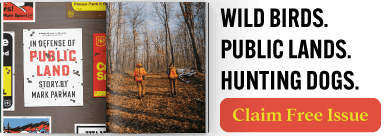

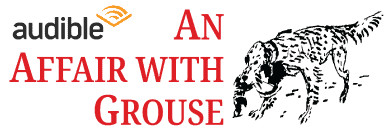
Very well written and knowledgeable article. Thank you!